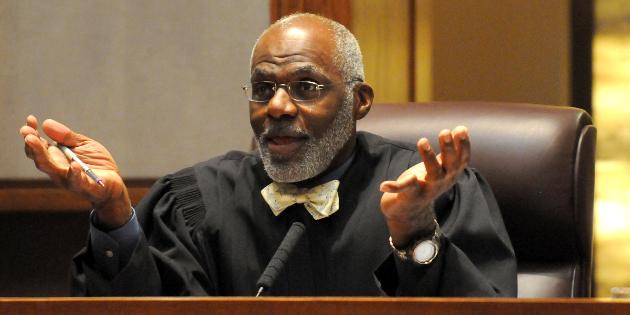Buy the Farm — A Win For The Home Team!
May 29th, 2013
Today we had a rulemaking Advisory Committee meeting about Public Utilities Commission rules for Certificate of Need proceedings. More on that later, because at 10:00 a.m. the Minnesota Supreme Court decision on Buy the Farm was released (Buy the Farm, Minn. Stat. 216B.12, Subd. 4, is a statutory provision where landowners can force a utility to condemn their whole parcel, rather than just a narrow easement and let them get out from living under a transmission line), and oh what a decision. Kudos to Jerry Von Korff, who was at the rulemaking meeting, and his cohort Igor Lenzner, also Michael Rajkowski and Sarah Jewell, the attorneys who brought the appeal, plus Rod Krass/Kirk Schnitker and yours truly on Amicus. It was a win for landowners, homeowners, farmers, business owners, for everyone who has transmission condemnation/eminent domain cases pending, this one’s for YOU!
It really doesn’t get much better than this.
Bottom line on minimum compensation? Landowners are entitled to minimum compensation:
Appellants who elected to require utilities to condemn their entire properties in fee pursuant to Minn. Stat. § 216E.12 (2012) are entitled to minimum compensation under Minn. Stat. § 117.187 (2012) as owners who “must relocate” because on the date of the taking, the utilities took title to and possession of appellants’ entire properties.
… and …
Accordingly, we must determine whether appellants were required to relocate at the time their properties were taken. Because NSP initiated quick-take condemnation proceedings, the time of the takings with respect to appellants’ properties was when title to and possession of the property passed to NSP. See Moorhead Econ. Dev. Auth., 789 N.W.2d at 874 (explaining that “the date of the taking” in a quick-take condemnation proceeding is when “the transfer of title and possession” occurs, which is “well before the commissioners file their award”). It is undisputed that by the time title to and possession of appellants’ properties passed to NSP, appellants had made their elections under Minn. Stat. § 216E.12, subd. 4, which by operation of the statute, automatically converted the easements sought into fee takings. See Minn. Stat. § 216E.12, subd. 4 (explaining that at the time the property owner makes an election, “the easement interest over and adjacent to the lands designated by the owner to be acquired in fee . . . shall automatically be converted into a fee taking”). It follows that, at the time of the takings, NSP took title to and possession of appellants’ entire properties in fee. Therefore, we conclude that appellants were owners under Minn. Stat. § 117.187 who, at the time the takings occurred, “must relocate.” Accordingly, they are entitled to minimum compensation.
Bottom line on relocation benefits? Landowners are entitled to relocation benefits:
Because appellants are “displaced persons” under federal law, they are entitled to relocation assistance under Minn. Stat. §§ 117.50-.56 (2012).
… and…
Because appellants are required to relocate permanently, they do not fall within the exemption in 49 C.F.R. § 24.2(a)(9)(ii)(D). Therefore, because we conclude that appellants satisfy the definition of “displaced persons” under 42 U.S.C. § 4601(6)(A)(i)(I) and do not fall within any exemptions to that definition, we hold that appellants are entitled to relocation assistance under Minn. Stat. §§ 117.50-.56.
The decision was written by Justice Alan Page (photo from StarTribune www.startribune.com):
Yes, when he’s not wearing a football uniform, he’s the guy who is ALWAYS seen wearing one of his many classic “Jacobsen” bow ties, standing up for the public interest and the people of Minnesota. For him to be in the spot where he is, to do the work he’s doing, a long strange trip for a football player (sort of like it was for a truckdriver, eh?), with some good mentoring along the way.

This decision is something I’ve been working for, and toward, since I first got involved with the Chisago Transmission Project so long ago, and folks, that’s 17 years now…
Now and then, some event rates an “OH HAPPY DAY!” and this is the best of all, so this time from Aretha… OH HAPPY DAY!!!
From the St. Cloud Times:
The decision by the state’s highest court overturns a Court of Appeals decision and affirms the ruling by Stearns County District Court Judge Frank Kundrat that had been overturned by the Court of Appeals.
The Supreme Court ruling hinged on whether property owners who chose to require CapX to condemn their property would receive that compensation or whether those property owners chose to move from their property and therefore aren’t entitled to the compensation.
The case involves landowners who invoked the Buy the Farm statute, which allows homeowners and farmers to force a utility to purchase their entire property at fair market value rather than selling an easement to the utility.
CapX was offering to pay the landowners the fair market value of their property, but if it was a farm or an older house, they probably wouldn’t be able to find a comparable property for the same amount. CapX said, in some cases, that adding minimum compensation could drive up the purchase price by as much as three times the fair market value.
Numerous CapX condemnation cases already have been heard by a panel of three real estate agents that set the value of the properties that elected to use the Buy the Farm provision. That panel set two values for each property in dispute — one if the Supreme Court granted minimum compensation and another if the high court rejected minimum compensation.
The case decided Wednesday by the Supreme Court will go back to Kundrat, who will determine what relocation costs are for each homeowner involved in the lawsuit.
Kundrat previously ruled that the homeowners who invoked the Buy the Farm statute were entitled to relocation costs and minimum compensation. A three-judge panel of the Court of Appeals reversed that decision, in a 2-1 vote.
That panel decided that the landowners chose to move from their property after CapX took a portion of their land for an easement to access, maintain and repair the transmission line. The lone dissent, Judge Edward Cleary, wrote that the landowners essentially were forced from their property by an involuntary taking by CapX and that they were entitled to the compensation and relocation costs.
The Supreme Court decision overturned that decision and echoed what Cleary said in his Court of Appeals dissent.

Leave a Reply